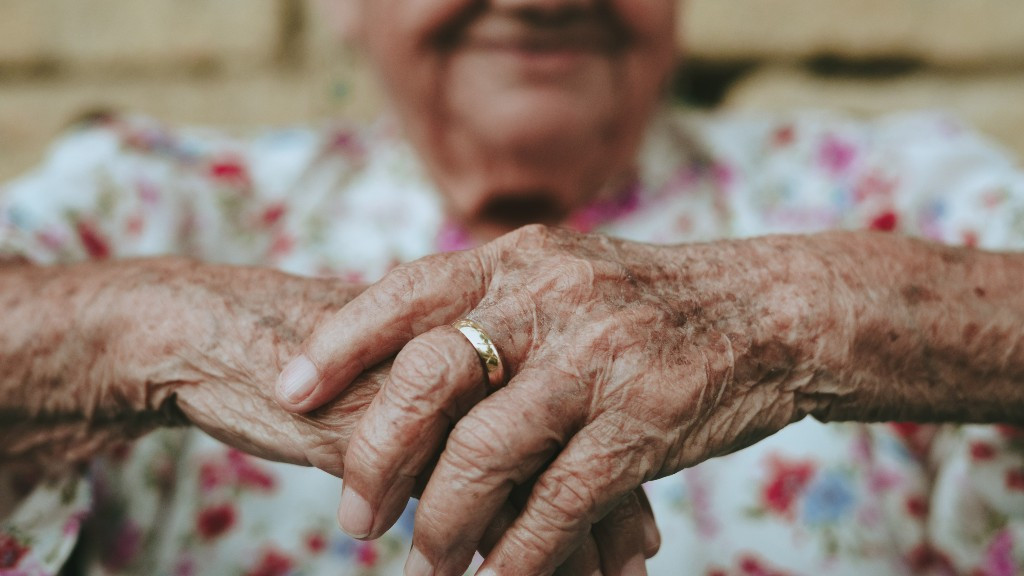An app helps people in a situation of dependency and isolation to communicate with the outside world
The app connects calls on patients' phones automatically, without them having to do anythingMirou is an entrepreneurial project promoted in conjunction with the UOC

Marta Izquierdo is a student at the Universitat Oberta de Catalunya (UOC). She has developed Mirou, an application that enables people in a situation of dependency to make voice or video calls. The idea for the application, which was one of the projects selected in the university's SpinUOC 2022 entrepreneurship programme, was inspired by the student's own experience working in healthcare in 2020, in the early months of the COVID-19 pandemic.
As Izquierdo explained, her first job as a nursing assistant involved doing night shifts at a temporary COVID-19 facility in Barcelona. She was greatly affected by the experience: looking after patients that, in addition to being highly dependent, with very advanced dementia and brain damage, were now isolated. "I remember a particular patient who had suffered brain damage several times and whose mobile phone was lying right next to them on their bedside table. Although they couldn't move or talk, they could still hear things," she remembered two years on.
This situation, in the early days of COVID-19 – when healthcare workers had to wear awkward PPE and minimize the time spent in patients' bedrooms while taking care not to touch anything – sowed the seed of the Mirou project in Izquierdo's mind. "I assumed there'd be some kind of system to enable these people to communicate with their families without having to wait for someone to pick up their mobile phone and press a button," she said.
Izquierdo scoured the market for possible options but found nothing that might help dependent people in isolation. At the time, she was studying for a Master's Degree in User Experience (UX) and Interaction Design with the UOC's Faculty of Computer Science, Multimedia and Telecommunications. "This opened my eyes to possible ideas in the field of technology and communication," she explained, and it led her to decide to develop Mirou as her master's degree final project.
An easy-to-use application
With this easy-to-use application, users in isolation can communicate with family members or other people outside the healthcare setting through voice or video calls. "When a family member calls the patient, the call is answered automatically, without the patient having to do anything," Izquierdo explained.
This simple mechanism makes the person feel less isolated in a simple way that does not involve the patient having to rely on someone else to help them make contact with the outside world. "It's one more way to help not just the isolated person but also their family members, who are often unable to communicate due to restricted visiting hours or because the healthcare staff aren't able to help," she said.
Furthermore, the application also makes the work of healthcare staff easier: "Healthcare workers are no longer needed to help with these communications between patients and family members, freeing them up for other tasks."
Mirou thus provides an open window in the room of anyone who needs to be isolated for medical reasons and is otherwise unable to communicate with the outside world without help.
A prototype of the app has been successfully tested on a small scale
Izquierdo has already developed a prototype of the app, which has been tested on a small scale by patients at a healthcare facility. The feedback from the tests has been very good, leading her to develop the project. "We want to find someone who can develop the app, and we're open to collaborating with someone," she explained.
Taking part in the #SpinUOC entrepreneurship programme has helped her "think about the project, where we want to go and what we should do next, and it's given us the necessary tools to do so". She also pointed out that, in addition, this UOC initiative helps publicize her project among public or private organizations that may be interested in it. "The UOC's a great source of support in the presentation of Mirou to the world," she concluded.
What is #SpinUOC?
SpinUOC is an entrepreneurship and knowledge transfer programme organized every year by the UOC. Run via the UOC's Hubbik platform, the initiative aims to promote and foster innovative projects that are linked to the university's fields of knowledge and conceived by UOC students, alumni, faculty members, researchers, course instructors or administrative staff.
This project supports Sustainable Development Goal (SDG) 3, Ensure healthy lives and promote well-being for all at all ages.
UOC R&I
The UOC's research and innovation (R&I) is helping overcome pressing challenges faced by global societies in the 21st century, by studying interactions between technology and human & social sciences with a specific focus on the network society, e-learning and e-health.
The UOC's research is conducted by over 500 researchers and 51 research groups distributed between the university's seven faculties, the E-learning Research programme, and two research centres: the Internet Interdisciplinary Institute (IN3) and the eHealth Center (eHC).
The University also cultivates online learning innovations at its eLearning Innovation Center (eLinC), as well as UOC community entrepreneurship and knowledge transfer via the Hubbik platform.
The United Nations' 2030 Agenda for Sustainable Development and open knowledge serve as strategic pillars for the UOC's teaching, research and innovation. More information: research.uoc.edu #UOC25years
Experts UOC
Press contact
-
Editorial department
